At Bellacity we embrace creativity and are dedicated to providing the best customer service. We are located in Kasarani and Zimmerman, Nairobi Kenya. View more of our great work at Pinterest.

















At Bellacity we embrace creativity and are dedicated to providing the best customer service. We are located in Kasarani and Zimmerman, Nairobi Kenya. View more of our great work at Pinterest.

















Procrastination is a prevalent issue that can befall everyone. It is defined as the act of delaying or postponing tasks or actions until they become urgent or even impossible to do. Research shows that procrastination can lead to tension, anxiety, and poor performance. However, if you are looking for ways to eliminate proctrastination, These article outlines some of the best mechanisms that an individual can employ to mitigate frequent postponing of tasks. We will explore some useful tactics for preventing procrastination and getting things done by the end article.
One of the primary reasons people procrastinate is a lack of clear goals and priorities. It can be tough to stay focused and motivated if you don’t know what you want to achieve. As a result, it is critical to set defined and attainable goals for oneself. Create a list of everything you need to complete and prioritize chores according to priority and urgency.
Another reason individuals procrastinate is because chores may appear too difficult. It’s easy to put off a chore that seems too huge. Break the task down into smaller, more manageable chunks to avoid this. This will make the task seem less daunting and more manageable.
A timetable can assist you in staying on track and avoiding procrastination. Organize your day or week ahead of time and assign certain tasks to specified periods.

This will assist you in being focused and making the most of your time. Adobe has an online timetable maker software that can help you significantly to create a good time table to plan your day(s).
Procrastination is often caused by distractions. Social media, email, and other forms of online communication can be especially distracting. Eliminate or reduce these distractions to avoid procrastination. Turn off your phone, close any superfluous computer tabs, and make your office as silent as possible.
Deadlines can be an effective motivator. Giving yourself deadlines might help you keep focused and on track. Make sure your deadlines are reasonable and attainable, and then stick to them.
Lastly, it is critical to recognize and thank yourself for a job well done. Appreciate your achievements and take breaks when you need them. This will assist you in remaining motivated and avoiding burnout.

In conclusion, while procrastination is a difficult habit to change, it is not impossible. You may avoid procrastinating and achieve your goals by making clear goals and priorities, splitting things into smaller pieces, developing a timetable, removing distractions, setting deadlines, and rewarding yourself. Remember that staying focused, motivated, and consistent is essential.

Photography is a field that has existed since 1822 when Joseph Nicéphore Niépce took the first picture, In Kenya it has been embraced and I find myself to be passionate of it. There are many photographers in Kenya, some good others not so good but in this article, I will be sharing a list of Top 10 photographers whose works stand out.
Without saying much, let’s dive into the list of Top 10 photographers in Kenya in 2023.
Related article: Best Photographers in Kenya in 2025
I didnt think twice, Kevin Buo is the best photographer in Kenya. Since i started photography I have been looking up to him and so are many photographers.
Did you know that Buo was among the first photographers to work with socialite celebrities in Kenya, the likes of Vera Sidika and Hudah Monroe. Actually, in an interview with Nation, it is asserted that he is the photographer who helped kickstart the socialite ‘careers’ of these amazing and wonderful ladies.

Below are some of his works

I dont know if you have heard of Ondivow, if you havent then you are missing out. He is simply a masterpiece and even if he existed in the 16th century, his works will still be interesting to the then audience.
Although i have seen some of his portraits, the guy likes to capture events as they occur especially in low socio economic areas like Kibera.
His name Ondivow means “In The Vow,” refering to a vow that he made to himself that he will be telling stories the way they are through Photography.
He is also a filmmaker and one of his greatest works is a music video by Octopizzo dubbed KingSize.
Below are some of Ondivow’s works


What can I say—Minicheps is a genius. Her photography is out of this world, quite literally. She uses photo manipulation to turn everyday moments into magical scenes where she appears miniaturized—hence the name Mini-cheps.
Her creativity has caught global attention, and brands now queue to work with her. She has completely redefined visual storytelling in Kenya. You just can’t talk about creative photography in Kenya without mentioning her.
If you’ve seen any crisp wedding or portrait photos recently, there’s a good chance Muma Pix was behind them. His editing is clean, the colors are vibrant, and he knows how to capture emotions in a way that feels genuine.
He’s built a solid name in the industry, working with celebrities, weddings, and even brand campaigns. A true storyteller through the lens.
Njeri is one of the rising female forces in Kenyan photography. Her style leans toward fashion, portraits, and conceptual shoots. But what really makes her stand out is her ability to make her subjects look confident and powerful.
She’s also passionate about mentoring upcoming female creatives, which makes her not just talented—but impactful too.
Kapedo has a very unique style—it’s gritty, dramatic, and bold. He shoots mostly in black and white, focusing on human emotion and street scenes. His work feels like a movie—raw and poetic.
He doesn’t chase trends, and maybe that’s why his art stands out. If you’re looking for photography that makes you think and feel deeply, Kapedo is your guy.
You can’t talk about Kenyan cityscapes and architecture without mentioning Mutua Matheka. He is the king of capturing Nairobi and other African cities in ways that make you fall in love with concrete and lights.
He uses drones, long exposure, and symmetry to bring out the beauty of African urban life. His work has been featured globally, and he’s a big advocate for redefining Africa through visuals.
Clinton Wanjala is one of the best voices in Kenyan photography. He specializes in portrait, product, fashion, editorial, and street photography. His use of color and angles makes every image feel fresh and stylish. You can check out some of my work at Behance.
You’ve probably seen Ben Kiruthi’s work on a wedding blog or magazine. He’s one of the most respected wedding and portrait photographers in the country. His love story with photography is well documented—and it shows in the love stories he captures.
Ben also trains photographers, speaks at workshops, and promotes healthy marriages with his wife, making him not just a photographer, but also a life coach of sorts.
Lastly, we have Lyra Aoko—a powerful name in Kenyan visual art. She blends photography with art direction, and the results are stunning. From fashion shoots to brand campaigns, she always delivers something soulful and elegant.
Her work represents a modern African woman—bold, soft, and creative. She’s also worked with major brands across Africa, and she continues to elevate visual storytelling in the continent.
Kenya is home to some seriously talented photographers—these ten are just the tip of the iceberg. Each one brings a different flavor, a different story, and a different kind of inspiration.
If you’re a photographer reading this, keep creating, keep learning, and keep telling our stories. The world is watching.

The greatest mystery that men have always fallen short of is satisfying women. That is why you will always hear men say that there is no manual to satisfying women.
If anyone came up with a manual for understanding women, I think he or she will be the greatest person in the world and will be celebrated forever by all generations.
The complexity of women did not start today or this 21st century, actually it dates back to the creation story. God himself, despite being all-knowing failed to satisfy a woman.

If King Solomon, being the wisest man to have ever existed failed to satisfy a woman, do you think you can? The answer is a big bolded “NO”. A man cannot and can never satisfy a woman. Period.
Have you ever heard of the “Round Table Theory?” If you haven’t then it is a unique king of table, round in nature, unlike the conventional tables which are rectangular. The round table does not have a head which means that everyone sitting at the table has equal status.

This particular round table was first created by King Arthur who wanted his barons to feel equal. Arthur drew his inspiration to create the table after observing how women treat men. According to his observation, women craved for satisfaction. Since no one man could have everything that women needed, they took it upon themselves to find one man for each of their desire, need, and want.
What Are You Bringing to the Table is a common question in negotiation and currently it is often used in everyday life.
The phrase refers to what are you offering or the contributions that come with your association. It was drawn from King Arthur’s use of the round table. At King Arthur’s round table, every member had at least one thing that made them useful, convenient unique, or valuable.
It’s women’s nature to get bored easily compared to men. Moreover, women expect more from men, contrarily, men do not expect much from women. As a result, women are always on the search for something better and at times something exciting.

Bill Gates failed to satisfy and woman and so Did Jeff Bezzos
Summing up, it is impossible for a man to satisfy a woman, King Solomon didn’t, and God too didn’t, why do you think you can?!

Yes, Jesus loves me
For the Bible tells me so (tells me)
So (tells me so)
Jesus loves me, this I know
For the Bible tells me so
Little ones to him belong
They are weak but he is strong
Yes, Jesus loves me
Oh, yes Jesus loves me (loves me so)
Yes, Jesus loves me
For the Bible tells me so (tells me so), so glad
Pressing on the upward way
Always guide me, Lord, I pray
Undeserving, and stubbornly
Never fail to love me still
Yes, Jesus loves me
Oh yes, Jesus loves me (loves me)
Oh yes, Jesus loves me
For the Bible tells me so (loves me so, and I know)
(Loves me)
Yes, Jesus loves me, love
Oh yes, Jesus loves me
For the Bible tells me so
(I know I am loved)
For the Bible tells me so
(Feels so good to know)
Ooh, that I’m never alone
See, sometimes I’m lonely but never alone, no
For the Bible tells, for the Bible tells
For the Bible, oh Lord, it tells me so (tells me so), so glad (tells me so)
See I know that he loves me, yeah (tells me so)
Whether I’m right, mm (tells me so)
And whether I’m wrong, oh yes, he did (tells me so)
Oh the Bible tells me, me (tells me so)
Jesus loves me

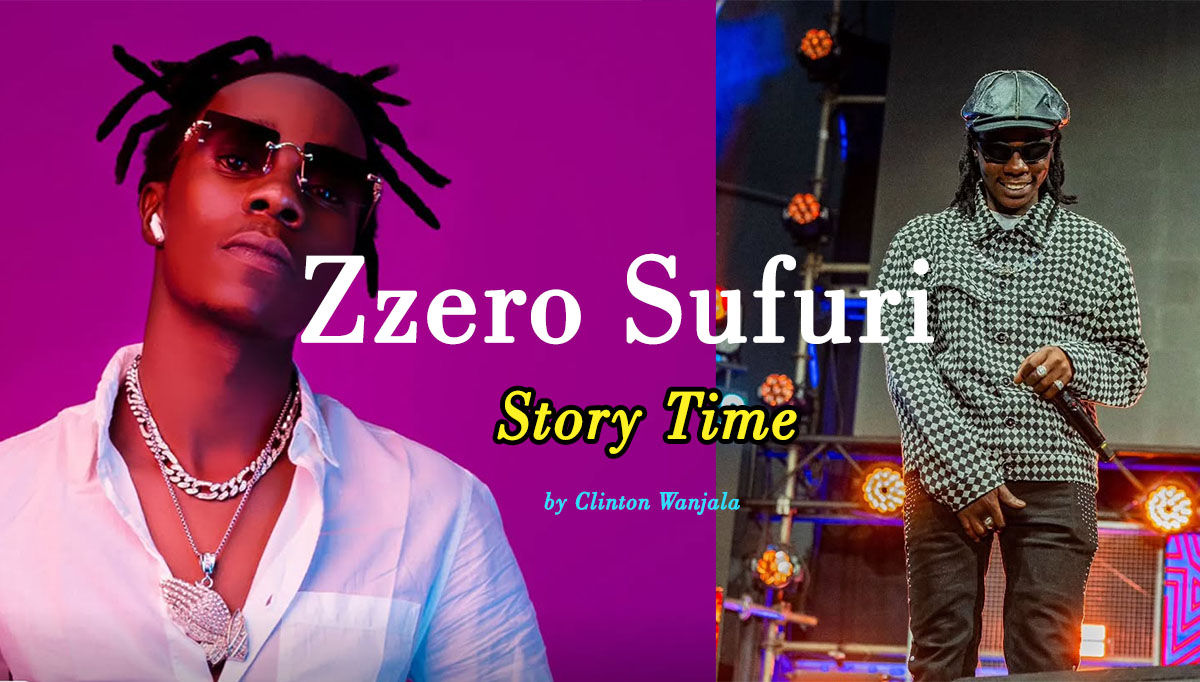
When you think about the Kenyan music scene, certain names pop up almost instinctively—giants who have shaped the soundtracks of our lives. Among them is Jeremiah Tege, better known as Zero Sufuri. His name still evokes memories of wild club nights, timeless anthems, and a voice that somehow made the gritty reality of ghetto life sound poetic.
But who is Zero Sufuri? Where did he come from, and how did his story unfold? Grab a cup of chai, and let’s dive into his journey—a tale of resilience, faith, and an unshakable love for music.

Born in 1992, Zero Sufuri grew up in Nairobi’s Dagoreti South constituency, Riruta to be exact. His childhood wasn’t all rosy—like many kids in the ghetto, his education was a game of musical chairs. He switched schools more times than he can probably count. But what he lacked in academic consistency, he made up for with raw talent and a sharp sense of rhythm.
Even as a kid, music ran through his veins. His father, a preacher, could’ve easily dismissed his son’s dreams of a music career. Instead, he chose to support Zero, offering a foundation of faith and encouragement that would later prove invaluable.
Zero’s musical roots trace back to the church, where he sang with a gospel group called Boys of God (B.O.G). But life has a funny way of steering us in unexpected directions. For Zero, that path eventually led him from the sanctuary of gospel to the unfiltered world of secular music.
2019 was the year everything changed. Zero released Zimenishika, a song that could only be described as lightning in a bottle. It was the anthem you couldn’t escape—blaring from matatus, playing in clubs, and filling the air in every corner of Kenya.

And yet, behind the scenes, Zero’s life was anything but glamorous. At the height of Zimenishika’s success, he was homeless, sleeping behind a generator in a part of Nairobi so rough, danger was just another neighbor.
But that’s the thing about music. It has this incredible power to elevate you, to pull you out of the muck and give you a shot at something better. For Zero, Zimenishika wasn’t just a hit song; it was a lifeline. It opened doors—literally. Suddenly, he was touring, performing in Dubai, and even sharing stages with international stars like Alpha Blondy.
Zero’s fans loved him with an intensity that only raw, authentic music can inspire. Comments like “Zero motivates me” and “from zero to hero” flooded social media. People saw in him not just an artist but a symbol of hope—a reminder that you could rise above your circumstances, no matter how bleak.
But fame, as we all know, is a double-edged sword. Zero struggled to keep up with the demands of the industry. Consistency became a challenge. Sure, he released more hits—songs like Machiyati, Matisha, and his unforgettable Christmas banger with Nuclea—but the momentum of Zimenishika proved hard to sustain.
Collaborations with artists like Femi One and Breeder LW kept his name in the mix, but something felt different. The buzz that once surrounded him started to fade, and questions began to swirl: Where is Zero Sufuri now? Why isn’t he dominating the charts like before?
If you think about it, Zero’s story isn’t unique in the world of Gengetone. The genre itself has seen its fair share of ups and downs. Many artists struggle with the same things—staying consistent, adapting to an ever-changing music landscape, and balancing the pressures of fame with personal struggles.
But let’s not get it twisted. Zero Sufuri is no one-hit wonder. His music still resonates, and his journey is far from over. If anything, his challenges make him even more relatable. They remind us that behind the flashy music videos and the catchy hooks are real people with real stories.
So, what do we take away from Zero Sufuri’s story? For starters, it’s a testament to the power of talent, grit, and community. It’s about a kid from Riruta who dared to dream big, even when the odds were stacked against him.
And while his path hasn’t been smooth, it’s also not final. Zero has already proven that he’s capable of greatness. Whether he’s on stage in Dubai or crafting his next hit from the heart of Nairobi, one thing is certain: Zero Sufuri’s music is a part of Kenya’s cultural fabric.
So, the next time you hear Zimenishika or one of his other tracks, take a moment to appreciate the journey it represents. It’s more than just music—it’s a story of survival, resilience, and the unbreakable spirit of a Kenyan artist who refuses to be defined by anything other than his art.
Cheers to that.

It was all laughs and heartfelt moments on TV47 when comedian Mammito sat down with Betty Kyallo on Friday, December 6. The two bonded over motherhood, with Mammito sharing her experiences as she awaits the arrival of her baby.
The heavily pregnant comedian had Betty in stitches as she joked about pregnancy mood swings and other relatable symptoms. “You know those days you just cry because the sun is shining too bright? Or because someone looked at you too long? Pregnancy is a full-time job,” Mammito quipped, leaving Betty nodding in agreement.
Mammito is gearing up for her upcoming comedy show on December 20, titled Maandamano Baby. And no, it’s not just about protests. “I’m so excited to share this part of my life with my fans,” Mammito shared. “I’ve been on stage since I was 18, cracking jokes about heartbreaks and Nairobi men. Now, I finally have a fresh topic—motherhood! Plus, maandamano has been a huge theme this year, so combining the two just felt perfect.”

Her enthusiasm for the show was infectious as she spoke about the journey leading up to this milestone. “This year has been a rollercoaster, and I can’t wait to laugh about it with everyone. It’s big for me, and I hope it’ll be big for my fans too.”
Of course, curiosity about her baby daddy came up—and Betty didn’t hold back. With her signature wit, Mammito dodged the question, offering just enough to keep fans guessing. “He’s someone’s son… a man… you know…” she added with a shy laugh, leaving Betty pressing for more.

“You’ve really kept him private, kama ile kitu!” Betty teased, referencing Mammito’s famously secretive love life.
Mammito agreed, saying, “In this Nairobi, you have to keep your relationship private. Otherwise, they’ll steal him! Imagine showing him off, and people start saying, ‘Oh, he doesn’t look good,’ or worse, ‘Let me try him!’ At 31, I don’t have time to start over—like, asking someone their favorite color? No, thanks!”
Betty couldn’t stop laughing as Mammito broke down the unspoken Kenyan rule: don’t expose your man unless you’re ready for competition. “Men are fragile! You let your guard down, and someone will swoop in,” Mammito joked.
When asked if her baby daddy might be Eddie Butita, her ex, Mammito quickly dismissed it. “That’s history! Four years ago is like four lifetimes. Let’s not dig up old stories.”
Mammito shared a few tidbits about her mystery man. “He’s not in the industry, and that’s what I love. I’ve dated within the industry before, and let’s just say, nilichomeka. This time, I wanted someone different—someone who doesn’t understand why I’m posting a silly meme at 3 a.m.”
The comedian gushed about how happy they are together. “Our relationship works because we’re in different worlds. He makes the money, and I make the jokes. As long as he keeps the cash flowing, I’m good!” she laughed.
As for marriage plans, Mammito is keeping things open. “Let me first give birth. We’ll cross the marriage bridge later. Nairobi marriage life… eish! One step at a time, Betty.”
Mammito’s charm lies in her ability to balance humor and honesty. She doesn’t shy away from sharing her life—on her terms—and her fans love her for it. Whether she’s cracking jokes about heartbreak or celebrating her upcoming motherhood, Mammito’s authenticity shines through.
With Maandamano Baby just days away, fans can expect a show full of laughter, wit, and maybe a few more juicy hints about her mystery man. Don’t miss it!
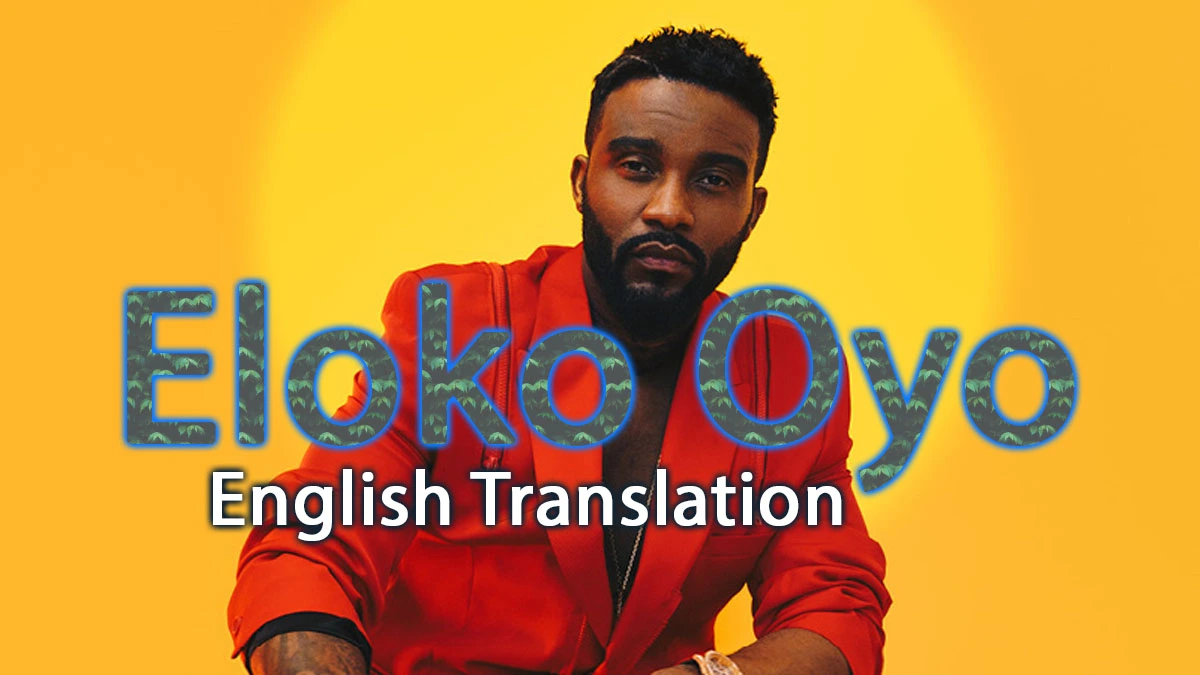
Ya ngoyo
(Here it is)
Ngonga ango ya ngoyo
(The time has come,)
Ya ngoyo
(Here it is)
Tango ya ko loba oh ya ngoyo
(The time to say it, here it is)
Eloko oyo eleki diamant ya ngoyo (The thing that’s worth more than diamond, here it is)
E somba ba mituka oh Eloko oyo
(It has bought cars, here it is)
E somba ba lopango oh Eloko oyo
(It has bought plots, here it is)
Poto pé oh pé na Eloko oyo (Wonderful places and abroad,
all credits to this thing)
Eloko yango nint eh Miziki
(What’s that eh music)
Eloko yango nini eh Miziki
(What’s that thing eh Music)
Na lela oh bisso oyo
(I love it about us)
Ba kolo Mbonda oh bisso oyo
(We, kings of music)
Na lela oh bisso oyo
(I love it about us)
Ba Kolo Mbonda oh bisso oyo
(We, kings of music)
Lego, Lego oh, lego, lego oh
(Let go, let go, let go, let go)
Le 2 juillet bisso tembé na foire
(2nd of July we’ll prove it)
Lego, Lego oh, lego, lego oh
(Let go, let go, let go, let go)
Ngoya oyééé, ngoya oyé,
(Love it, love it)
Ngoya oyééé, ngoya oyé,
(Love it, love it)
Eloko oyo eleki diamant ya ngoyo (The thing that’s worth more than diamond, here it is)
E somba ba mituka oh Eloko oyo
(It has bought cars, here it is)
Poto pé mikili oh pé na eloko oyo
(Wonderful places and abroad it’s only this thing)
L’autre la Na eloko oyo (Everything also with this thing)
Mbongo ya tonton essila obeh na eloko oyo
(That guy’s money has been finished because of this thing)
Eloko yango nini eh Miziki
(What’s that thing eh Music)
Eloko yango nini eh Miziki
(What’s that thing eh Music)
Na lela oh bisso oyo
(I love it about us)
Ba kolo Mbonda oh bisso oyo
(Us, kings of music)
Eloko oyo eleki diamant Miziki
(The only thing Worth more
than diamond Music)
Lego, Lego oh, lego, lego oh
(Let go, let go, let go, let go)
2 juillet bisso tembé na foire
(2nd of July we’ll prove it)
Lego, Lego oh, lego, lego oh
(Let go, let go, let go, let go)
Tango ya ko panza oh ya ngoyo.
(Time to mess up things, here we go)
Tika to panza sangho eloko ayo (Let’s say it loud about this thing)
Eloko oyo eleki diamant ya ngoyo
(The thing that’s worth more than diamond, here it is)
E somba ba mituka oh Eloko oyo
(It has bought cars, here it is)
Poto pé mikili tih na eloko oyo (Wonderful places, all with this thing)
L’autre la akweya oh Na eloko oyo (Screw anybody else with this thing)
Eloko yango nini eh Miziki
(What’s that thing eh Music)
Na lela oh bisso oyo
(I love it about us)
Ba kolo Mbonda oh bisso oyo
(Us, kings of music)
Ba kolo Mabina obeh bisso oyo (Kings of dance truly here we are)
Ba kolo ba nzembo oh bisso oyo
( Kings of music oh here we are)
Na lela oh bisso oyo (I love it about us)
Ba kolo Mbonda oh bisso oyo
(Us, kings of music)
Eloko yango nini eh Miziki
(What’s that thing eh Music)
Lego, Lego oh, lego, lego oh
(Let go, let go, let go, let go)
Le 2 juillet bisso tembé na foire
(2nd of July we’ll prove it)
Lego, Lego oh, lego, lego oh
(Let go, let go, let go, let go)

When we talk about beauty, we’re not just talking about a pretty face. We mean presence, confidence, glow, and that it factor that makes heads turn.
These beautiful Kenyan women have it all, and that’s why they’ve earned a spot on our exclusive list of Kenya’s most beautiful women in 2025.
Azziad is not just another pretty face, she’s the whole package! From the moment she blew up with her viral TikTok dance, she’s been stealing hearts left, right, and center.
Her radiant smile? Unmatched. Her skin? Flawless. Her charm? Effortless!

Azziad’s beauty is the kind that lights up a room, and it’s no surprise she’s one of the most loved personalities in Kenya.
Whether she’s rocking a natural look or going full glam, she always looks like a dream.
Ever heard of beauty that stops you in your tracks? That’s Nasha Travis for you! With her striking features, perfect skin, and elegant style, Nasha is the kind of woman who turns casual walks into runway moments.
She’s fresh, she’s glowing, and she’s bringing a new wave of beauty that has everyone talking.
It’s no wonder she made this list, when she steps out, you have to stare!

Call her controversial, call her extra, but you must call her beautiful. Vera Sidika has been Kenya’s ultimate beauty queen for years, and she’s still holding onto her crown.
Her flawless skin, curvaceous body, and undeniable presence make her impossible to ignore.
Vera knows what works for her, and she wears confidence like a second skin.
Whether she’s serving billionaire-wife vibes or casual elegance, she stays breathtaking.

Also read: How to Get over your Ex Quickly-Vera Sidika
Some people are beautiful, and some people are Amber Ray beautiful—a whole different league!
She is effortlessly sultry, with features so sharp and a body so sculpted it’s like she was made to break necks.
She exudes an irresistible allure, and no matter how many times she trends, it’s her beauty that always stands out. Drama aside, one thing is clear, Amber Ray is a showstopper!

There’s something about Atieno’s beauty that feels so raw and authentic.
She doesn’t need heavy makeup or extravagant outfits to turn heads; her elegance speaks for itself.
With her rich melanin glow and perfectly sculpted features, she’s a walking masterpiece.

Atieno embodies the kind of beauty that celebrates natural grace, and that’s why she deserves her spot on this list.

When Trisha steps out, it’s a whole fashion event! She’s mastered the art of looking effortlessly stunning, whether she’s rocking a casual fit or a full-on glam look.
Her face? Flawless. Her style? Impeccable. Her aura? Magnetic.

Trisha’s beauty is the kind that makes you do a double-take, and her confidence makes it even more captivating.



Winnie’s beauty is like a breath of fresh air; soft, elegant, and unforgettable.
She has that effortless glow that makes her stand out in any crowd, with features so delicate yet striking that you just have to admire her.

Whether she’s serving subtle glam or full-on diva mode, Winnie carries herself with grace, making her one of the most admired women in Kenya.

Brains? Check. Beauty? Check. Confidence? Double check! Corazon isn’t just one of the most stunning women in Kenya, she’s a full-on powerhouse.

Her gorgeous face, hourglass figure, and magnetic energy make her impossible to ignore. She embraces her beauty with pride, and that self-love makes her even more dazzling.


Sarah Hassan has been a beauty icon for over a decade, and somehow, she keeps getting more stunning! With her smooth skin, radiant smile, and captivating eyes, she’s the kind of woman whose beauty never fades.

Sarah embodies elegance, and whether she’s on screen or off, she always looks like a queen.



Huddah doesn’t just look good—she owns her beauty. With her striking features, flawless skin, and undeniable confidence, she knows she’s one of Kenya’s most beautiful women, and she makes sure you know it too.

Whether she’s in Dubai, Paris, or Nairobi, Huddah stays looking like a global superstar. She’s the ultimate beauty icon, and there’s no way she wasn’t making this list!

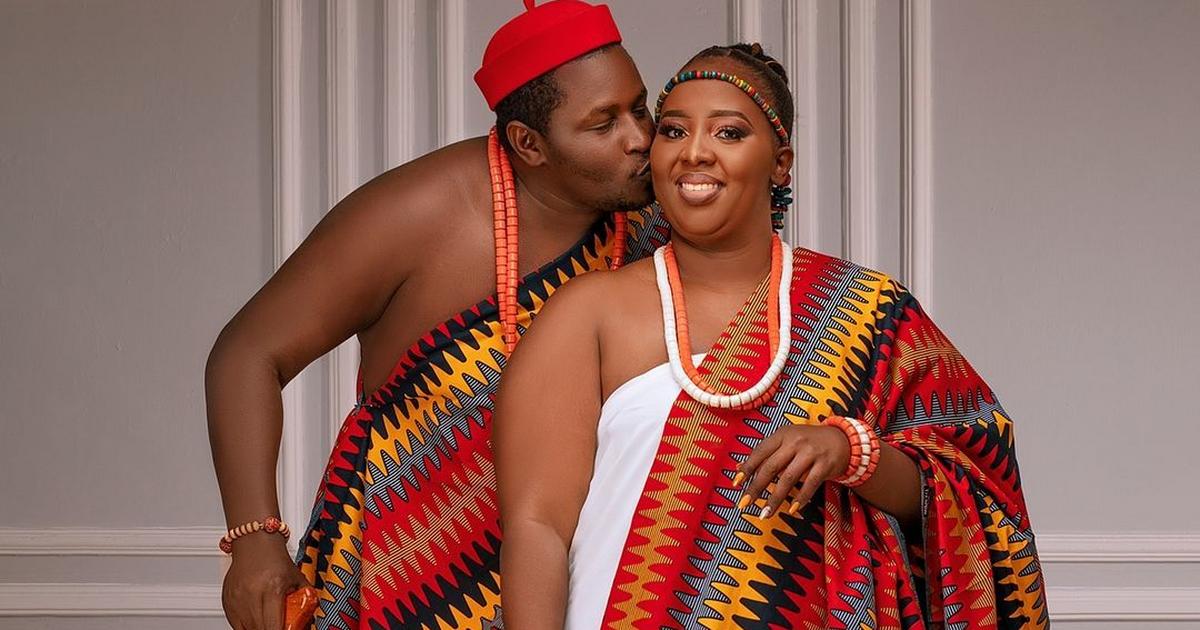
Finally, Terence Creative and Milly Chebby have decided to speak up.
For months, their fans have been asking the same question: “Mbona harusi haifanyiki?” (Why hasn’t the wedding happened?). Others have been quick to speculate, throwing around all sorts of wild rumors. Cheating, scandals… you name it.
Now, the couple has set the record straight.

In a candid conversation on Milly Chebby’s YouTube channel, the two opened up about everything—yes, everything! From the cheating allegations to why their much-anticipated wedding didn’t happen in 2024.
Also Read: Is YY and Mary Okoth Back together?
Terence didn’t hold back. He firmly denied claims that he was unfaithful again.
“I did not do it,” he said, shaking his head. “We have never even met. How do you cheat with someone you’ve never even seen face-to-face? It doesn’t make sense.”
He went on to say that, when the time is right, he’ll release recordings to clear his name.
“If I had messed up, I would have said it. Si ni mimi huyo? I confessed the first time, why lie now? But I won’t take blame for something I haven’t done,” he added.
Terence made it clear that he’s committed to his wife and family. And he had a word for those fueling the gossip: “Please, stop spreading lies. It’s not fair.”
Many will remember that in 2019, Terence found himself in hot soup. Back then, he admitted to cheating on Milly. It was all over the blogs and social media. And it broke Milly’s heart.
In an old interview with K24, Terence opened up about how bad he felt.
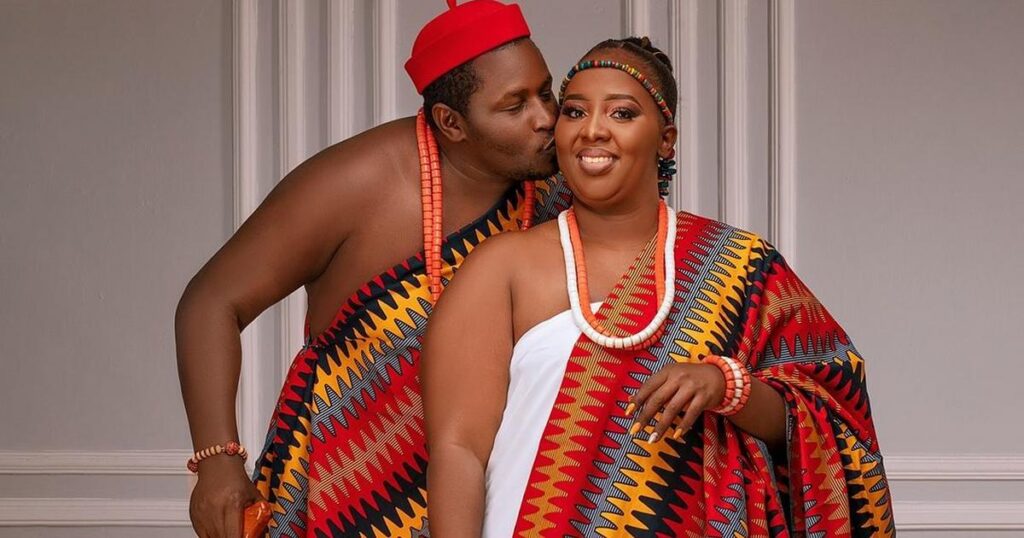
“I sat down and thought, Nimeharibu! I even dragged Milly into pain she didn’t deserve. It was tough. Society can be harsh. You don’t just throw away seven years of marriage because of one mistake.”
Despite everything, Milly forgave him. And that’s something Terence doesn’t take for granted.
“She gave me another chance. That’s why I work hard, both in marriage and my career,” he said.
2024 was supposed to be their year. Fans had hoped to see them walk down the aisle in style. But it didn’t happen. And tongues wagged.
Some said Terence was dragging his feet. Others hinted at drama behind the scenes.
But Milly was quick to set the record straight.
“We had planned for the wedding last year, but things didn’t go as expected,” she explained calmly. “Life happened. But I believe in God’s timing. When the time is right, the wedding will happen.”
She was also clear about one thing: Terence did not refuse to marry her.
“That story of Terence saying no to the wedding—lies. Pure lies,” Milly said.
The couple insisted they don’t bow to pressure. Whether it’s from fans, family, or social media, they do things their way.
“If there are people who don’t live under pressure, it’s us,” Milly smiled. “We trust God’s plan. Harusi haitoroki.” (A wedding doesn’t run away.)
So, for now, fans will just have to wait. When it happens, it will be worth the wait.

Savara, one of the talented artists from Sauti Sol, recently sat down for an interview on Obinna Live with comedian and radio host Obinna. The two, who have been friends for years, had a lively conversation, reminiscing about old times. Savara even jokingly thanked Obinna’s team for helping him get to where he is today, playfully adding that Obinna used to struggle back in the day.
As the conversation flowed, the topic of love came up, and Obinna was quick to ask the Show You Off hitmaker how he met his wife, Yvonne Endo.
You’d think that being a popular musician, Savara would have an easy time winning over the ladies. But when he first met Yvonne, things didn’t go as expected.
“Hakuwa ananilike, alikuwa anaona nikiwa wa kiherehere,” he revealed with a chuckle. (“She didn’t like me at first; she thought I was too hyper.”)
Savara explained that Yvonne initially judged him based on his flashy personality and his status as an artist, assuming he was a ladies’ man.
“Alikuwa anafikiria mimi ni mtu wa magaldem juu mimi ni msanii, lakini haikuwa ivo kumbe,” he shared. (“She thought I was a womanizer just because I’m an artist, but that wasn’t the case.”)
Yvonne and Savara first met at a festival. At the time, Savara was feeling a little confident—perhaps helped by a few drinks—and decided to approach her. In a bold and humorous move, he introduced himself as a stripper.
“I told her that I was a stripper, and she just laughed,” he recalled, clearly amused by the memory.
Despite the rocky start, Savara was determined to keep in touch. He made sure to get Yvonne’s number, and by early 2018, the two had made things official.
For a while, the couple chose to keep their relationship away from the public eye, wanting to avoid unnecessary scrutiny. Over time, fans got glimpses of their love story, especially during Sol Family, the reality show that followed the lives of Sauti Sol and their Sol Generation proteges.
When asked about marriage, Savara made it clear that he doesn’t feel pressured to put a ring on it just because people expect him to.
“A ring is just a symbol of something. Kuna wale wako na rings huko nje lakini bado si happy,” he said. (“There are people with rings out there, but they’re still not happy.”)

Yvonne Endo is a Kenyan-Japanese artist and designer who grew up in Nairobi. Alongside her sister, she runs a luxury clothing brand. Despite Savara’s initial antics, Yvonne eventually saw beyond the celebrity persona and fell in love with the man behind the music.
Their love story is a reminder that first impressions aren’t everything—and that sometimes, a little humor and persistence go a long way!
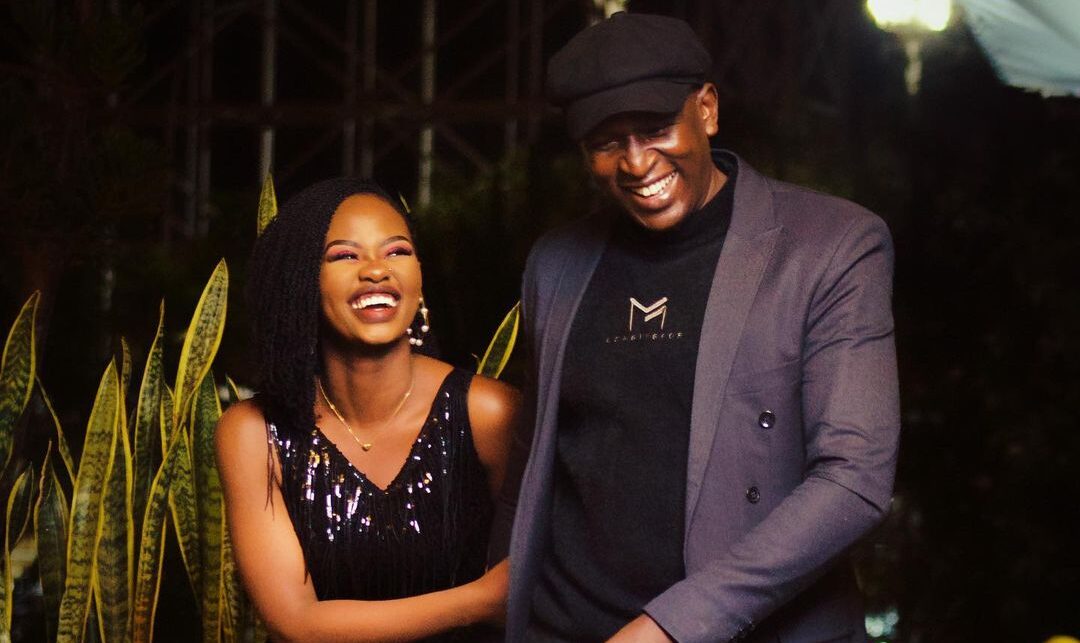
Kenyan entertainment streets are buzzing again, and this time, it’s all about YY Comedian (Oliver Otieno) and actress Marya Okoth. The once-beloved couple, whose breakup in September 2024 left fans in shock, now appears to be rekindling their flame—or so it seems from their recent social media moves.
For those who’ve been out of the loop, Marya Okoth, famed for her role in A Nurse Toto and her influence as a digital content creator, dropped the bombshell on Instagram last year. She cited “unavoidable circumstances” as the reason for their split.

YY, on the other hand, stayed quiet, channeling his energy into his comedy gigs, including the launch of Okoa Ndoa, a show meant to help struggling couples. Ironically, the timing of the show coincided with his own relationship drama, which left fans divided.
Not long after, YY was linked to Noela Toywa, but that relationship didn’t last either.

Marya, meanwhile, went off the radar, focusing on motherhood and her career. However, things have taken a new twist. Social media detectives—because Kenyans never sleep—recently noticed the two following each other again on Instagram. To make it juicier, they’ve even posted about each other, sparking chatter that a reunion might be brewing.
While it’s unclear whether this is a full-blown comeback or just nostalgic vibes, one thing is certain: these two have kept us on our toes. From their whirlwind love story to their public fallout and now this possible reunion, YY and Marya’s tale is a constant reminder of the highs and lows of celebrity relationships.

The streets are talking, timelines are refreshing, and fans are either rooting for a happy ending or just enjoying the drama. Whatever happens next, YY and Marya remain a hot topic in Kenyan showbiz, proving love and limelight make one unpredictable mix. Let’s wait and see what unfolds next!